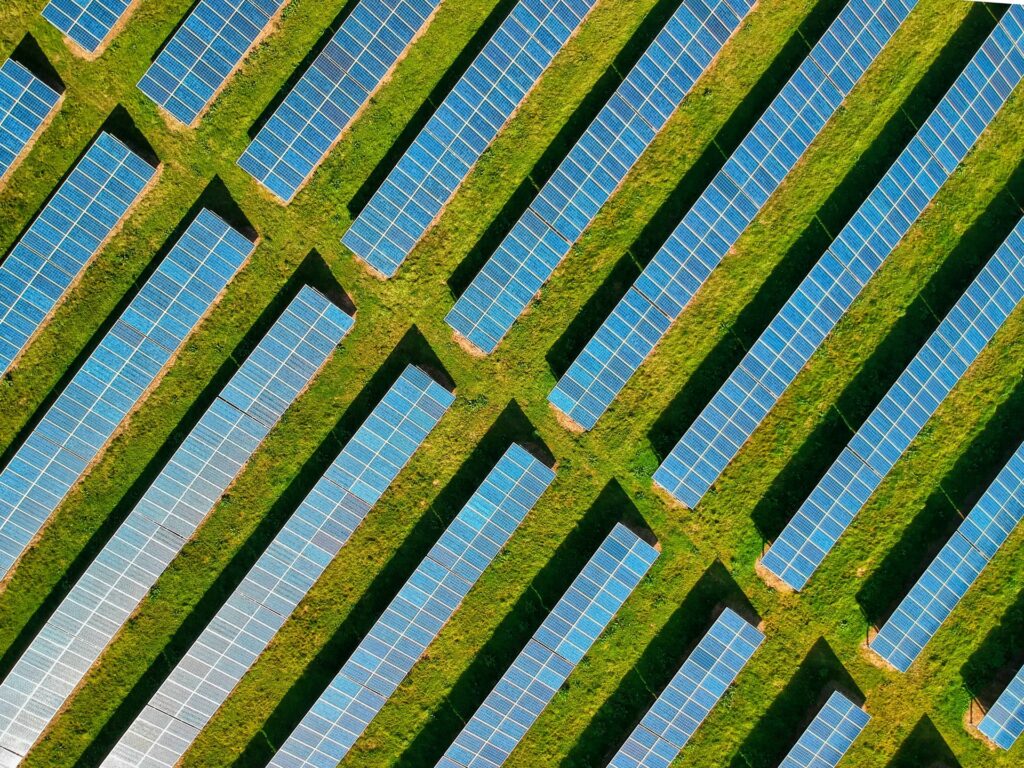We’re Proud to be Part of a Green Energy Milestone
Updated March 21, 2024
By Morgan Pierce
In late February, ESB announced that 1 gigawatt (1GW) of solar power had been connected to the grid. It’s an advance that Irish Solar Energy Association CEO Conall Bolger hailed as a “major milestone” in Ireland’s fight against climate change.
Bolger emphasized the important role that new industrial-size solar arrays have played in achieving this milestone so soon after the energizing of Ireland’s first so-called “solar farm”. The achievement demonstrated, Bolger said, “the genuine potential of solar”.
Minister for Climate Eamon Ryan TD, meanwhile, lauded the role that solar farms can play in supporting the rural economy, “providing new income streams to farmers, supporting jobs and benefitting communities across the country.”

ESB Networks chief Nicholas Tarrant made the essential point though – acknowledging “the collective effort involved in enabling the connection of clean solar power to our electricity network.”
Translated, that means that while solar farms generated a sizable portion of that 1 GW, “microgenerators” – in the form of domestic rooftop solar many Irish households have now installed – contributed more than their fair share.
According to the ESB’s estimates, rooftop solar power now accounts for 300 MW of the electricity fed to the grid.
Our Part in the 1 Gigawatt of Solar Power
We’re proud to be able to say that energy generated by SolarSmart customers – 630 of them – accounts for almost 4 MW of that power – just over 1% of the total.
If that doesn’t seem significant to you, think again.
Those 630 systems prevent 1,035.9 tonnes of CO2 from being produced every year.
That means, over their lifetimes, our current installations alone will avoid the equivalent of 30,971,535 km of car journeys, will plant the equivalent of 199,094 trees and will avoid the equivalent of 22,165 long-haul flights.
The increase in levels of CO2 in the Earth’s atmosphere has long been known to be a key driver in climate change. That’s why limiting its production or finding ways to abate it is so important.
There’s an excellent fact sheet on CO2 on Columbia University’s “State of the Planet” blog (it’s a scientific source we trust and follow for all sorts of climate news because it’s written with ordinary readers in mind).
Carbon dioxide and other greenhouse gases like methane “act like a blanket” trapping heat from the Earth that might otherwise have radiated out into space.
Before humans began burning fossil fuels, naturally occurring greenhouse gases helped to make Earth’s climate habitable. Without them, the planet’s average temperature would be below freezing. Burning fossil fuels now releases much more carbon into the atmosphere than can either be absorbed by natural processes or radiated out into the atmosphere.
“The planet’s temperature is a balance between how much energy comes in versus how much energy goes out.” Columbia’s team says. “Ultimately, any increase in the amount of heat-trapping means that the Earth’s surface gets hotter.”
“Plants, the oceans, and soil are natural carbon sinks — they remove some carbon dioxide from the atmosphere and store it underground, underwater, or in roots and tree trunks. Without human activity, the vast amounts of carbon in coal, oil, and natural gas deposits would have remained stored underground…But by burning these fossil fuels, humans are adding a lot more carbon into the atmosphere and ocean, and the carbon sinks don’t work fast enough to clean up our mess.”
Unchecked, climate change would affect us all – mass extinction of species, forced migration, water shortages, loss of arable land. The science tells us that we can avoid much of that through by decarbonizing our energy supply through a changeover to renewable sources like solar.
That’s why the “small stuff” – like each individual’s move to domestic solar power – matters. And it’s why we’re committed to growing as a company in ways that make it possible to help 1500 households a year make the switch to solar.
We’re committed to helping Ireland meet its target of generating 8GW of energy through solar power by 2030. If you’d like your home or business to be part of meeting the next important milestone, give us a call.
Investing in solar panel systems can bring many benefits, including reduced energy bills, increased energy independence, and a reduced carbon footprint. If you are interested in installing a solar panel system, it is also worth exploring the different grant options available and seeking professional advice from one of our solar energy advisors.
Feel free to contact us for more information, we’re here to help.
